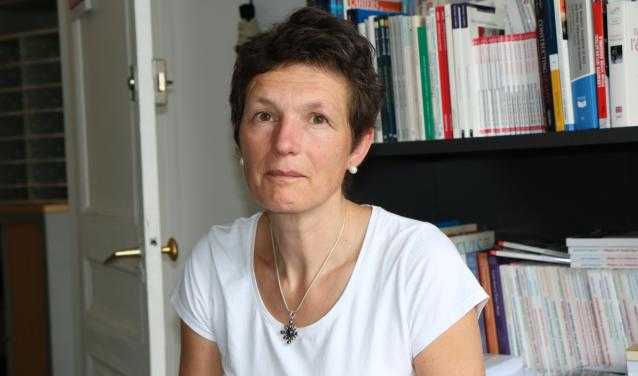Home>“The more we move up the social scale, the more discreet students are about their personal opinions”

15.08.2016
“The more we move up the social scale, the more discreet students are about their personal opinions”
Ylva Bergström is an associate professor of sociology of education at Sciences Po and senior lecturer at Uppsala University. Her recent research on the connection between political position-taking and social background highlights the “burden” of a person’s origins. She is a member of the research group Sociology of Education and Culture (SEC), which is a hub in Scandinavia for research centered on certain French traditions founded by Pierre Bourdieu, Jean-Paul Benzécri and others.
Could you explain your current field of research?
Lately I have been working on a project regarding youth and politics. I focused on how political position-taking corresponds to social background (parents' education and occupation), educational assets, both inherited and acquired (educational programme and school), gender and place (comparing urban life to rural environments).
What are the conclusions of your research?
The analysis discloses four different clusters of position taking: a ‘left-wing’ cluster of those who advocate economic redistribution and environmental protection, hold an egalitarian attitude towards immigrants and show reluctance towards the EU; a cluster of ‘trust and international orientation’ including those who avoid taking positions on liberal economic issues, are trustful of political institutions, and are interested in international politics; a cluster of ‘right-wing’ opinions including those who approve wage dispersion, marketisation of public welfare institutions and a trustful attitude to political institutions; and finally a ‘conservative (radical) right-wing’ cluster of opinions characterised by non-egalitarian attitudes towards immigrants, a belief that Sweden should accept fewer refugees and a lack of trust in political institutions.
How did you form these clusters?
In short, we found a homology between social structures, the field of education, and the political space. For example, the cluster of opinions united by a high level of trust in political institutions, an interest in international politics and a positive view of the EU was characterised by particularly resourceful students in the science programme. In contrast, in the conservative (radical) right-wing cluster of position takings there is an overrepresentation of male students in vocational programmes from a working class background. Furthermore, it is more common among students from the economic upper class not to express a personal political standpoint – especially on social and redistribution issues, or the environment for that matter. Rather, they show a general political interest and are very knowledgeable about international relations, human rights and so forth. We observe that the more we move up the social scale, the more discreet students are about their personal opinions.
Does this mean that economic capital (money, material goods) is the sole factor to influence political opinions?
Not at all! In fact, the sociologist Pierre Bourdieu identified three different kinds of capital that influence individual opinions: economic capital, cultural capital and social capital; in other words, your money, your education and your social network. In my research I found it interesting to note that in an urban environment, individuals who are rich in terms of cultural capital are more keen on discussing international politics and more culturally open than individuals who are rich in terms of economic capital.
I argue that vocational students’ skepticism about multiculturalism reflects a social distance between them and the economic and cultural elite, whose education prepared them to be so much more at ease with a multicultural society. The social distance between the highly educated elite and the disadvantaged vocational students is thus expressed in an aversion to, or at least a distrust of, multiculturalism.
Related links